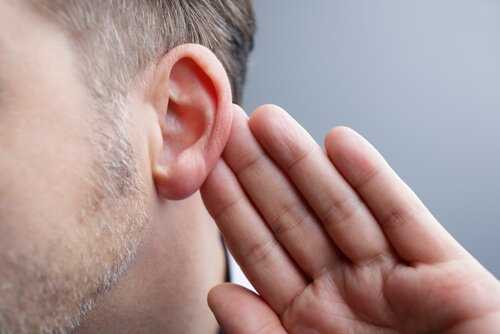
Military service can have lasting effects on a Veteran’s hearing health. Many Veterans experience hearing problems and tinnitus as a result of their time in service. These conditions, which may not manifest immediately, can significantly impact quality of life and may qualify for disability compensation.
At Berry Law, many of our attorneys are also Veterans. Our law firm has a unique understanding of the service events that may result in the development of tinnitus or hearing loss. Veterans affected by these conditions may be eligible for disability benefits from the U.S. Department of Veterans Affairs (VA). As a Minnesota VA disability attorney, our legal team can help file these claims or manage the appeal of a denied claim or undervalued disability rating.
Veterans often face two primary types of noise trauma during their service:
Historically, the military culture did not always prioritize hearing protection. For decades, exposure to loud noises from weapons and explosions was considered an unavoidable part of military life. Recent years have seen a shift towards encouraging and sometimes mandating the use of protective ear-wear, but many Veterans served before these practices were implemented.
There are three main types of hearing loss, each with unique characteristics and potential connections to military service:
Conductive hearing loss occurs when sound waves cannot properly travel through the outer ear, eardrum, or middle ear. This type of hearing loss can be caused by:
In military contexts, conductive hearing loss may result from:
Sensorineural hearing loss is the most common type and involves damage to the inner ear (cochlea) or to the nerve pathways from the inner ear to the brain. This type of hearing loss is often permanent and can be caused by:
For Veterans, sensorineural hearing loss is frequently associated with:
Mixed hearing loss is a combination of conductive and sensorineural hearing loss, affecting both the outer or middle ear and the inner ear or auditory nerve. This type can result from any combination of the causes mentioned above.
In military settings, mixed hearing loss might occur due to:
Each type of hearing loss can be directly related to military service in various ways:
The onset of hearing loss may not always be immediate. Some Veterans may experience progressive hearing loss years after their service, particularly in cases of sensorineural hearing loss due to noise exposure. When filing a claim for service-connected hearing loss, Veterans should provide as much detail as possible about their noise exposure and any ear-related injuries during service.
Medical examinations and audiological tests can help determine the type and severity of hearing loss to establish service connection and determine appropriate disability ratings. This helps ensure that all aspects of service-related hearing loss are properly considered and compensated.
Tinnitus, characterized by a persistent ringing or buzzing in the ears, is a common condition among Veterans. While often co-occurring with the types of hearing loss (especially sensorineural), tinnitus is a distinct condition. It can occur:
Tinnitus is often associated with damage to the auditory system, which can also cause hearing loss, which is why these conditions frequently occur together. However, they are separate conditions that can exist independently of each other.
For Veterans seeking disability compensation, tinnitus is typically evaluated separately from hearing loss. Unlike hearing loss, tinnitus is diagnosed based on subjective complaints and symptom descriptions, as there are no standardized objective tests for this condition.
Hearing loss, on the other hand, is typically assessed through objective testing. This includes speech recognition and auditory examinations to evaluate a Veteran’s ability to hear specific frequencies.
Hearing loss and tinnitus can have profound effects on Veterans’ daily lives, extending far beyond the immediate sensory impairment. These conditions often lead to significant challenges in various aspects of life, including mental health, social interactions, and professional endeavors.
Veterans with hearing loss or tinnitus may struggle with:
The impact of hearing loss and tinnitus on mental health can be significant:
Hearing impairment can significantly affect social interactions:
In the workplace, Veterans with hearing loss or tinnitus may face several obstacles:
Recognizing these wide-ranging effects is crucial for providing comprehensive support to Veterans with hearing loss and tinnitus. Effective interventions may include:
By addressing these challenges holistically, it’s possible to significantly improve the quality of life for Veterans affected by hearing loss and tinnitus, helping them to maintain fulfilling personal relationships, successful careers, and overall well-being despite their hearing-related disabilities.
To receive VA disability compensation for hearing loss or tinnitus, Veterans must prove that their condition is service-connected. This means demonstrating that the hearing issues are a result of their military service.
For VA disability on tinnitus, the disability rating is capped at 10% and is not considered bilateral, meaning Veterans can only receive benefits for it once, not for each ear separately. Hearing loss compensation, however, may vary based on the severity of the condition as determined by specific testing and rating criteria.
When filing a claim for hearing-related disabilities, Veterans should be prepared to provide:
Even if hearing issues were not diagnosed during active service, Veterans may still be eligible for compensation if they can prove service connection.
For Veterans struggling with hearing loss or tinnitus related to their military service, seeking legal assistance can be beneficial in navigating the complexities of the claims process and ensuring they receive appropriate compensation for their service-connected disabilities. At Berry Law, we work with Veterans from all branches of the service who are fighting to secure disability benefits for tinnitus and hearing loss. Our team can handle claims in all 50 states and is available 24/7. Call 888-883-2483 or fill out our online contact form for a free confidential consultation.
Our monthly newsletter features about important and up-to-date veterans' law news, keeping you informed about the changes that matter.